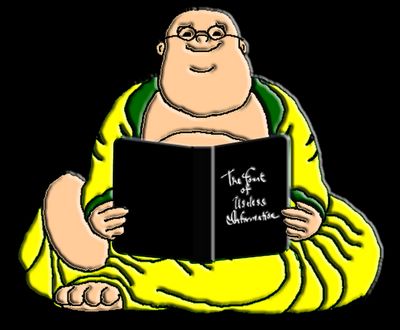It's the second Wednesday of the month, and that means it's time to talk barbecue. Last time I started going over the basics of the different forms of barbecue and focused on ribs. This month's edition is about brisket.
What is brisket? First of all, brisket is beef. It comes from the underside of the cow, in a region that is usually fairly tough and requires special care to prepare properly. This is the same cut of beef that is used to make corned beef. The principle there is to soak the meat in a spiced brine for (depending on who you ask) a week to three weeks. This helps deal with the toughness of the brisket. I personally prefer dealing with the toughness in a different manner: smoking. (By the way, you could actually smoke the brisket after corning, but you have created something different entirely. Pastrami.)
Smoking meats cooks them at a low temperature for long periods of time. Typically for a brisket you would use temperatures of 200-235 degrees (Fahrenheit) for several hours. Depending on the size of the brisket, that could be hours...like 15 hours. This long cooking time helps to melt what is making the meat tough (do we really want to have a discussion about gelatinization of collagen and other connective tissue? No? Let's just leave it as tenderizes the meat then, hmm?) and exposes it to some of the aromatic compounds in the smoke from whatever wood you are using.
Oh, we didn't cover wood yet? For smoking you will need a nice hardwood. You'll get all sorts of arguments on which wood to use. Some people swear by mesquite, while others say it's too strong. Others will tell you to use a fruit wood like apple, and even others will say that you won't be able to tell the difference between the woods anyway. If you have a preference, great; otherwise, I'd suggest something like chunks of hickory which is essentially the default and therefore the easiest to find. Alternatively, you could check out this article and read the recommended uses for each type.
Just like ribs, there are all sorts of decisions to make when preparing a brisket. The first ones happen at the grocery store or butcher's counter. First, which cut do you want, the point or the flat? Each one has its own disciples, and I'm not sure that I have a preference. As long it's prepared well, I'll eat the brisket without much thought to which cut it was. Now what about trimming? Normally when you get meat from the butcher you are going to want it to be trimmed of most of the fat. In this case you do not want the fat trimmed, because when you cook for most of the day, the fat cap on top of the meat will melt and keep the meat moist. Remove the cap, and you may end up with a dry hunk of beef.
Seasoning the brisket is entirely personal preference. Some people will recommend a dry rub and others a marinade. Personally, I like a good spicy dry rub with some cayenne and cumin. Either way, you are going to want a mop. No, not that mop. This mop will be sprinkled or basted on the brisket throughout the cooking time to help keep the moisture level up. Recipes for mops range from just a barbecue sauce (which doesn't really help the cause) to complex mixtures of everything from vinegar to coffee to beer. Whatever mop you choose, make sure it's something you like, because it will impact the flavor.
If it is prepared and smoked perfectly, the brisket will be moist and tender with a complex flavor of both the beef and the smoke. It's hard to beat a well done (but not well-done) brisket. So what are the downfalls? As we've already seen, there are lots of decisions to be made, just like with ribs. Brisket is a balancing act between tenderizing a meat that is too tough and keeping the meat from becoming dried out. Cook for too long or don't mop enough? You can end up with jerky. Cook at too high a temperature? You just might end up with a beef-flavored fruit roll-up. If you can manage to walk that line (or get someone else to do it for you), it is worth all the effort.
In the next edition: Pulled pork. The final member of our barbecue triumvirate.
Until later...
February 09, 2005
It's All About 'Cue: Part II
Subscribe to:
Post Comments (Atom)


3 comments:
This is a really funny discussion. Oh Fount...will you sometime describe veal in such loving detail?
Mock all you wish, but as an Alabamian with relatives in St. Louis and Kansas City you cannot deny the importance or power of barbecue. I have even managed to convert my Wisconsinite spouse, who once turned her nose up at the very idea of barbecue, into a smoke-loving 'cue-o-phile.
For the record: No, veal will not ever receive similar treatment on this site. Only food near and dear to my heart will be discussed in detail.
Darn, 'cause I've always been a little confused about Veal.
Post a Comment